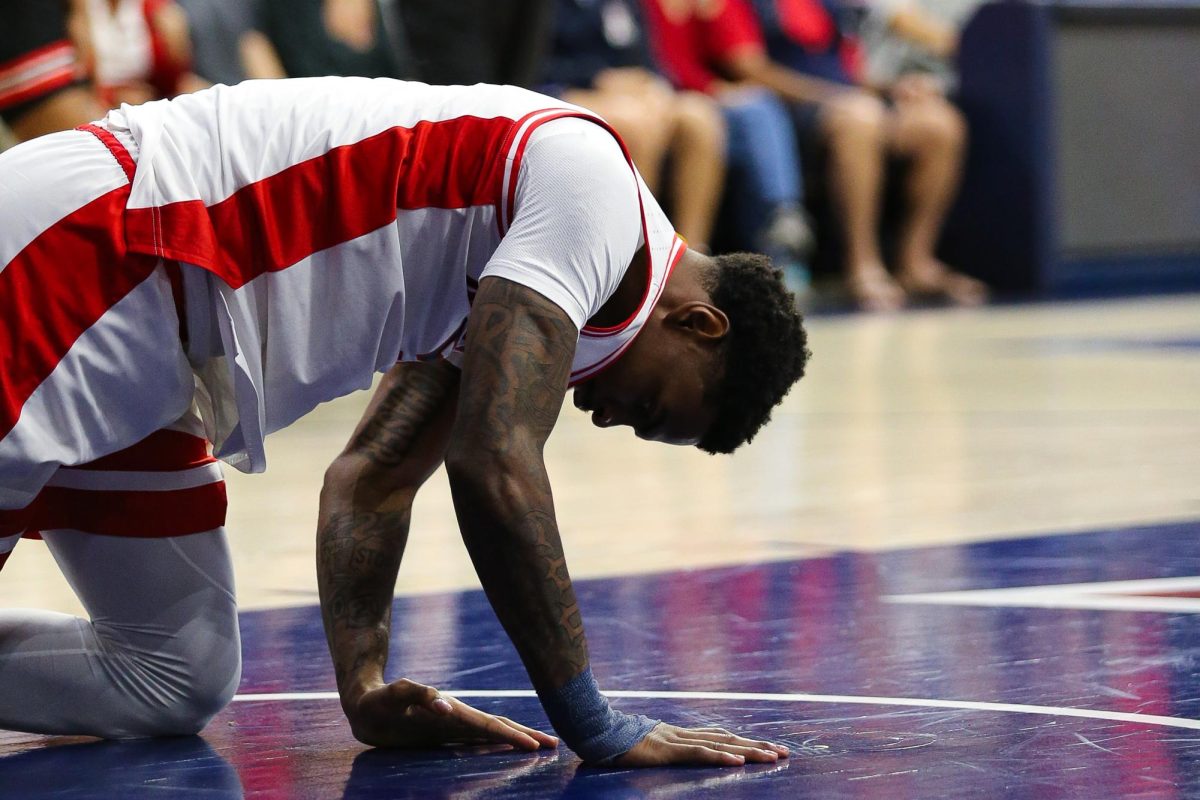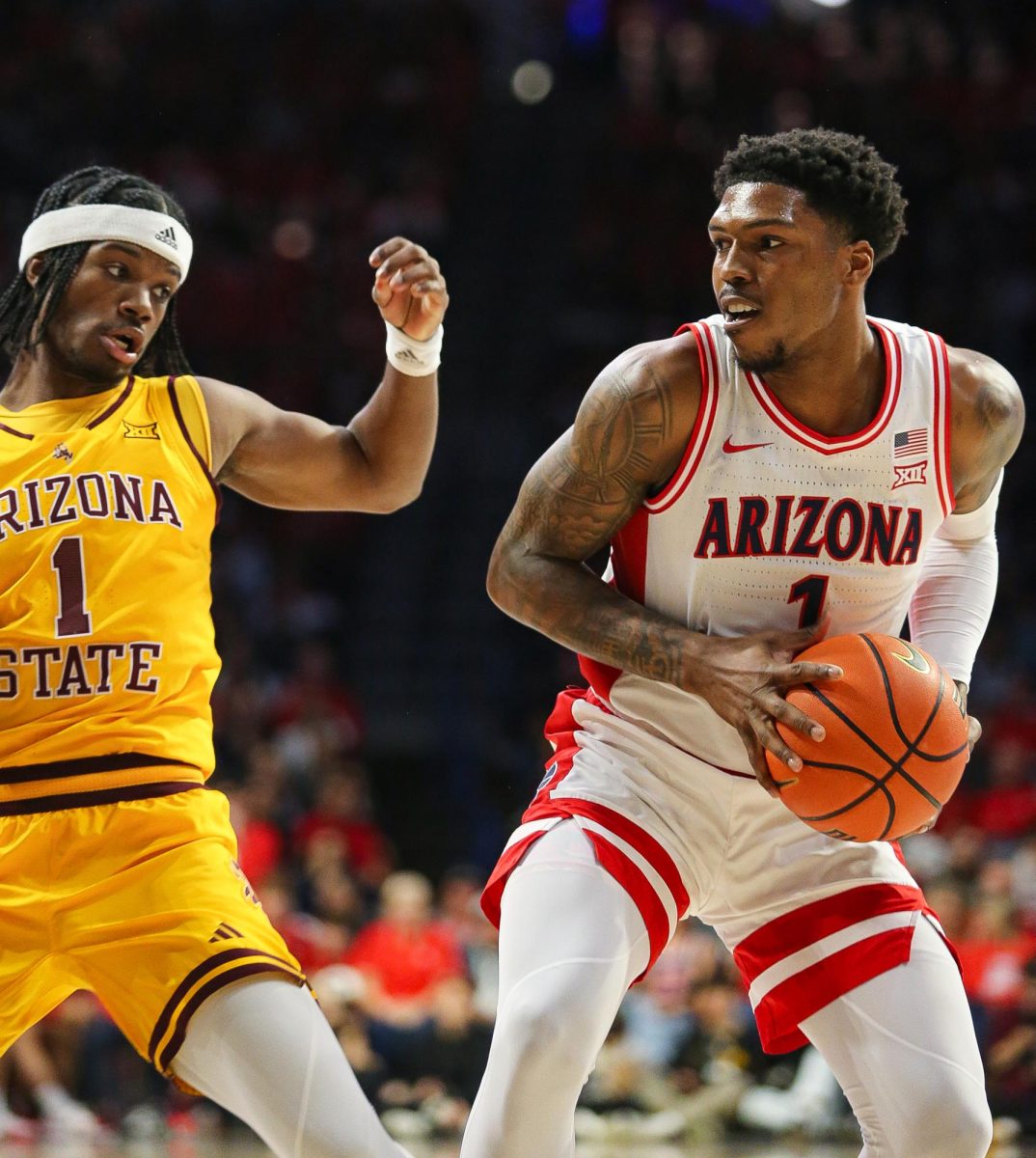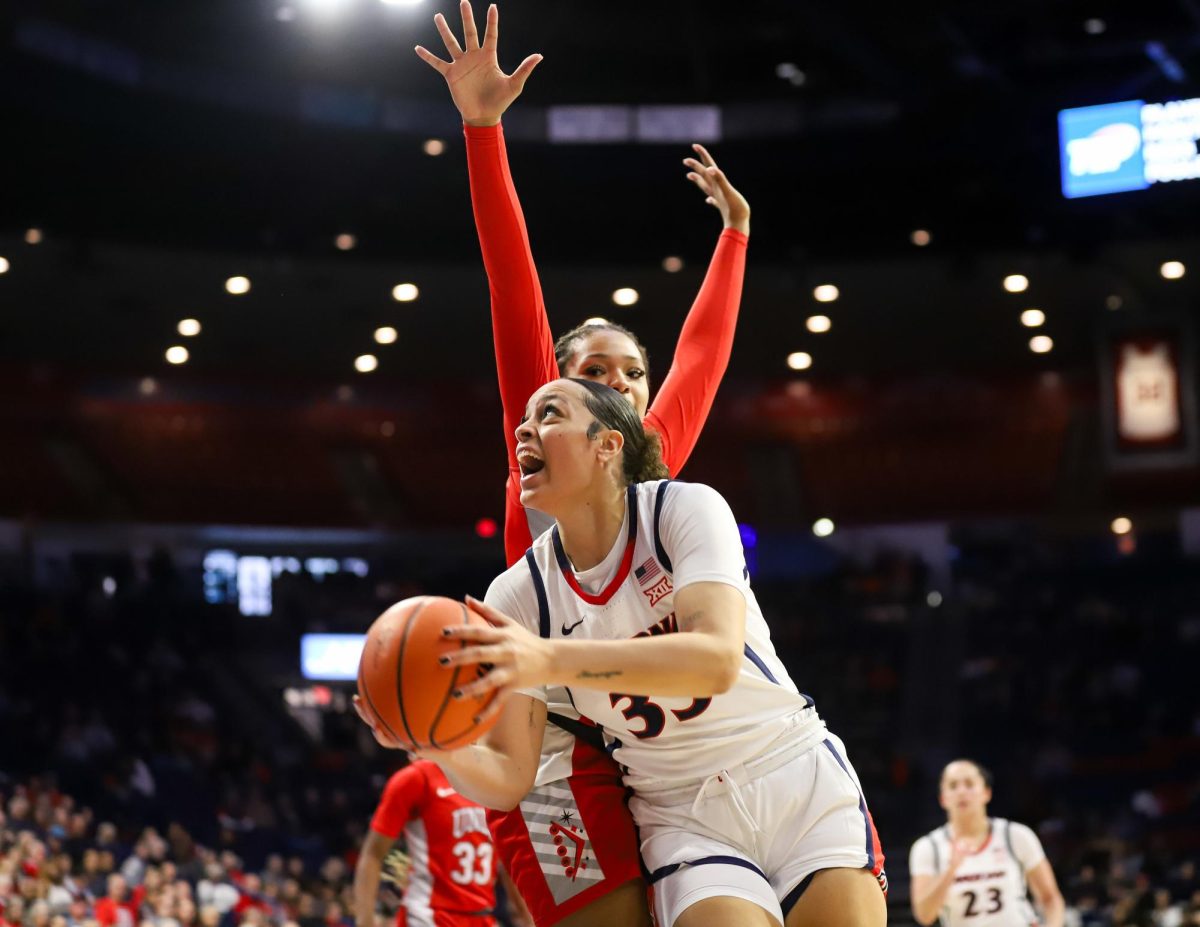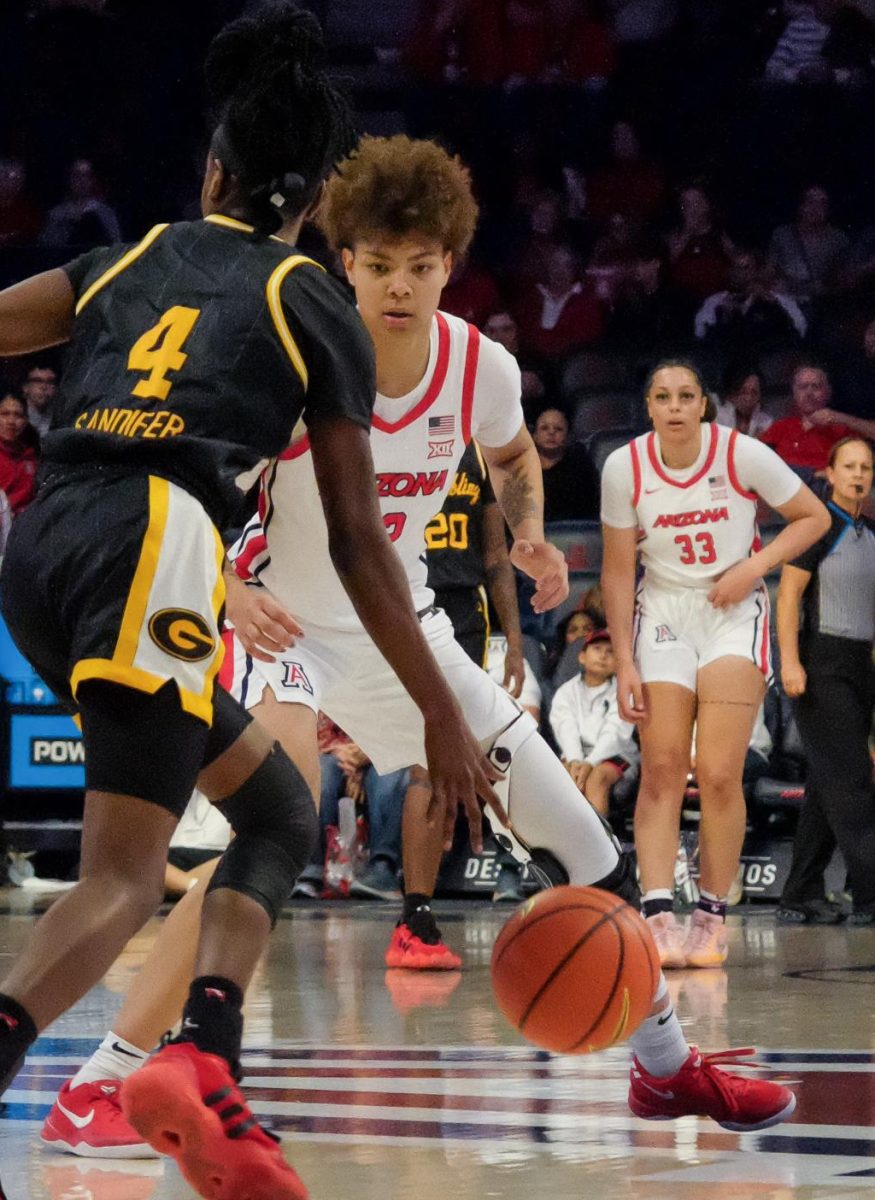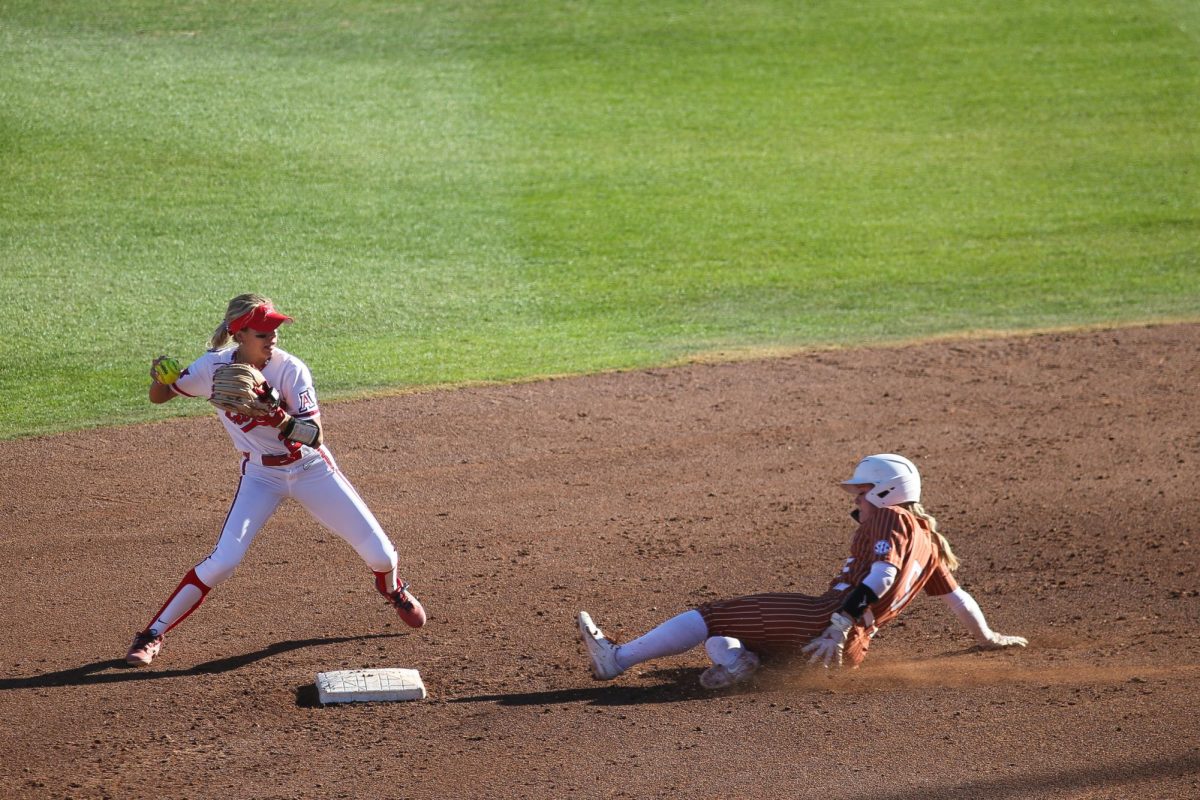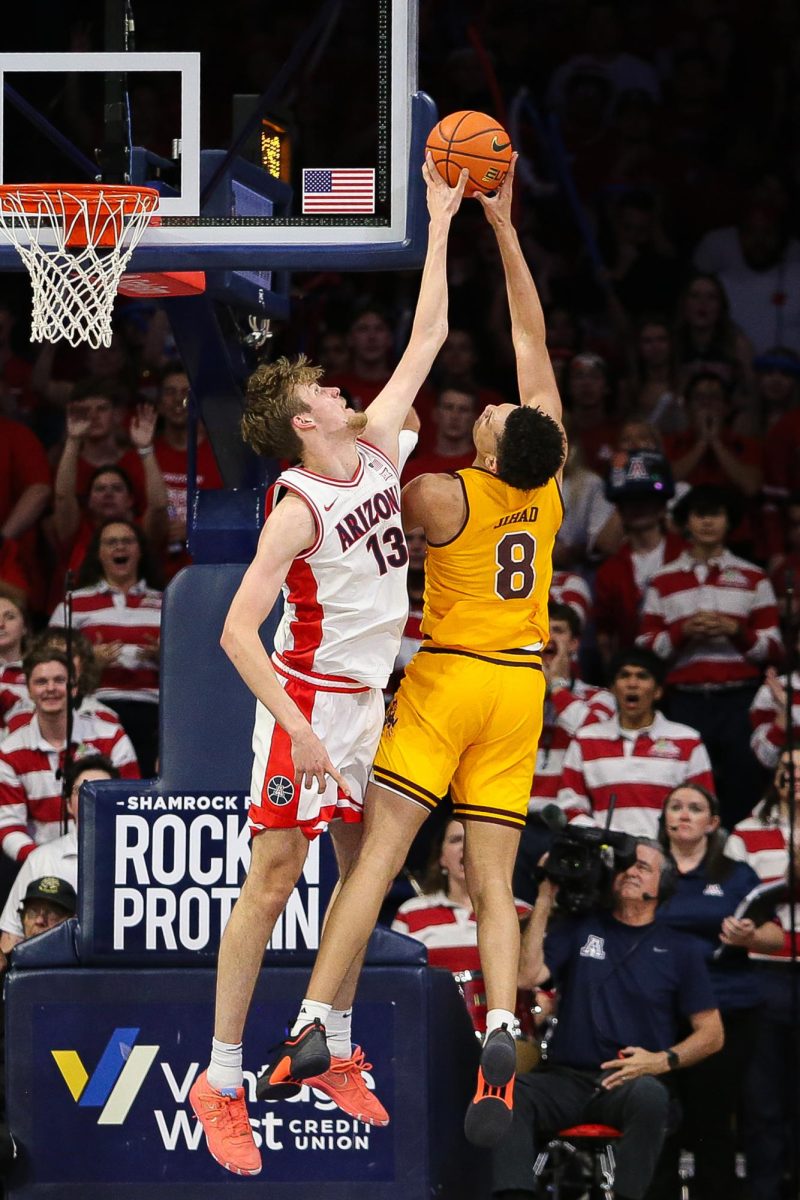The University of Arizona hockey team had one of their best summers from recruiting and brought in loads of talent. Among the group is Trey Decker, who stands out amongst his teammates through his personality, the edge he plays with and the experience he has under his belt.
Arizona boy
Trey Decker, like a handful of other Wildcat hockey players, is native to Arizona, a place that doesn’t come off as a hockey mecha.
“It’s nothing like when you go to places like Michigan, Pennsylvania where it [hockey] is just everywhere… I think I was the only hockey player at my high school,” Decker said. “I don’t think anyone has even been to a hockey game that I went to high school with.”
In fact, it was his family’s Minnesota roots that made him pick up a hockey stick and put on roller blades. When he was around eight, Decker put on his first pair of skates and bonded with a handful kids on the block over roller hockey on the streets.
According to Decker his childhood was like a scene out of a TV show: kids hacking and slashing at each other in the roads and picking up their nets and hustling out of the way of incoming cars. At some point when Decker began playing more and playing organized hockey he knew his role on the ice, a pest.
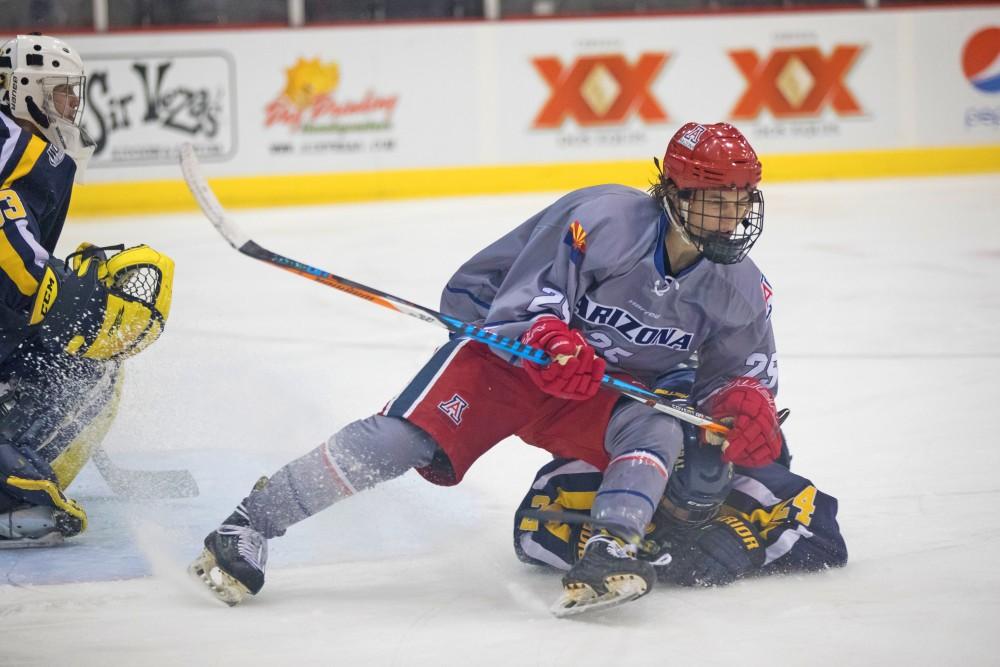
“I’m not the biggest guy, I’m definitely an antagonizer. I like to get under people’s skin. I’d call myself a pest for sure. I just like making people angry out there,” Decker said.
It’s one thing to be a pest, but you have to have a certain attitude to be an effective one and Decker had it. He was a relaxed guy and everything was a joy to him.
His attitude is praised as what makes for the type of guy who is the best at being a pest. Successful pests are masters at annoying the opposition about how unfazed they are when teams try to retaliate against their antics.
Decker played with various midget teams in the Arizona area until he hit 18-years-old when he finished high school and was onto a new phase of his life, and he didn’t think hockey had a role in it.
“I was 100 percent set on quitting hockey. I was gonna get a job and wasn’t even set on school at the moment,” Decker said.
But then, after playing in the National Midget Tournament with his Mission AZ Ice U18 team, he was approached by the Philadelphia Jr. Flyers of the Eastern Hockey League.
He still wasn’t sold on the idea though, so he took the offer home and asked his parents what he should do. They told him he should go for it and try it out for a year to see how he liked it.
So, he decided to make the trip to Philadelphia and ended up making some best friends and some of his best memories from his time there.
City of brotherly love
Rough.
That’s how Decker described his two years with the Jr. Flyers. The main reason was due to the not-quite-suburb, not-quite-farmland area him and fourteen other people lived in, according to Decker. It was him, thirteen junior hockey boys and his coach all packed into one house – that “wasn’t the nicest” according to Decker.
Would he have preferred being with a billet family, since billets are the typical option for players moving across the country to play?
“It would have been easier having food cooked for me,” Decker said. “After all, it was just a bunch of teenagers and young adults living together, so no one really ever cooked for each other.”
On rare occasions the group would cook, but most often they would visit a local gas station called ‘Wawa’. But this wasn’t considered your average gas station to the Jr. Flyers. Decker recalls that he was told it as a place so nice you could take a girl on a date there because the food is so good.
While the players bonded over gas station runs, the coaches pushed them away.
“No one liked the coaches,” Decker said, “and the coaches really didn’t like us.”
Decker and UA teammates who also played with the Flyers at the time were never put on lines together because the coach didn’t like them together and there was no actually reasoning behind it.
Looking into his character, he was able to take a negative, and turn it into a positive with ease. Decker knows his junior years benefitted him greatly, both on and off the ice.
“If you threw 18-year-old Trey into college, it wouldn’t have worked out well,” Decker said.
Maturing after playing junior hockey for two years helped him transition to college life on the Arizona campus.
And you can see that in the way Decker carries himself on the ice and how he plays. Be it his personality, his grit, or his skill, Decker has a lot to give this team for years to come.
Follow Rachel Huston on Twitter




